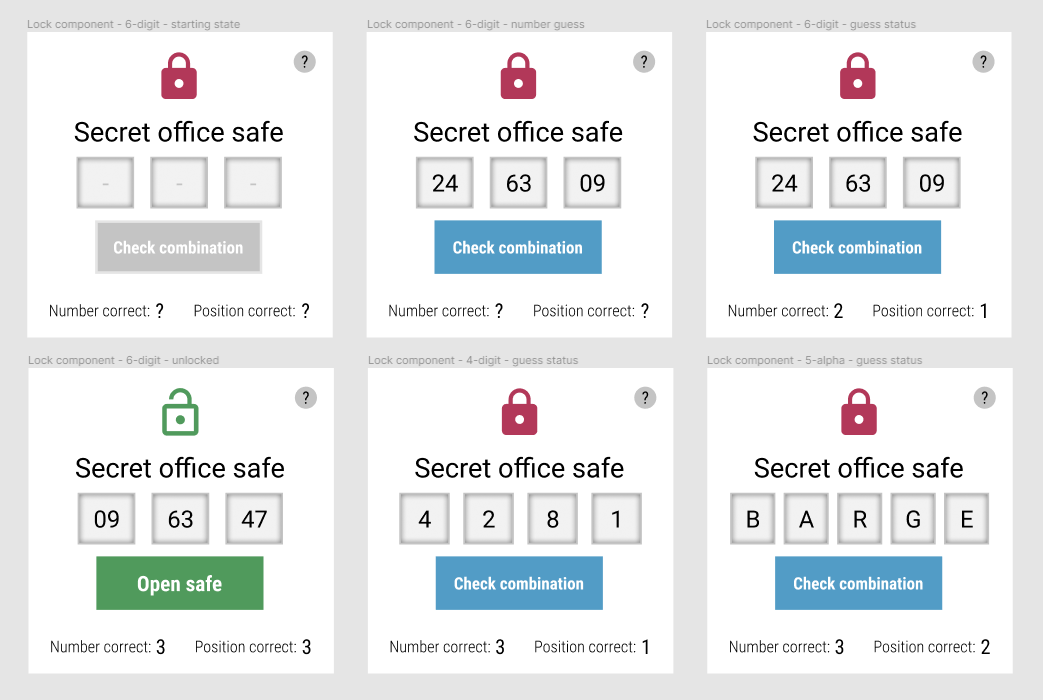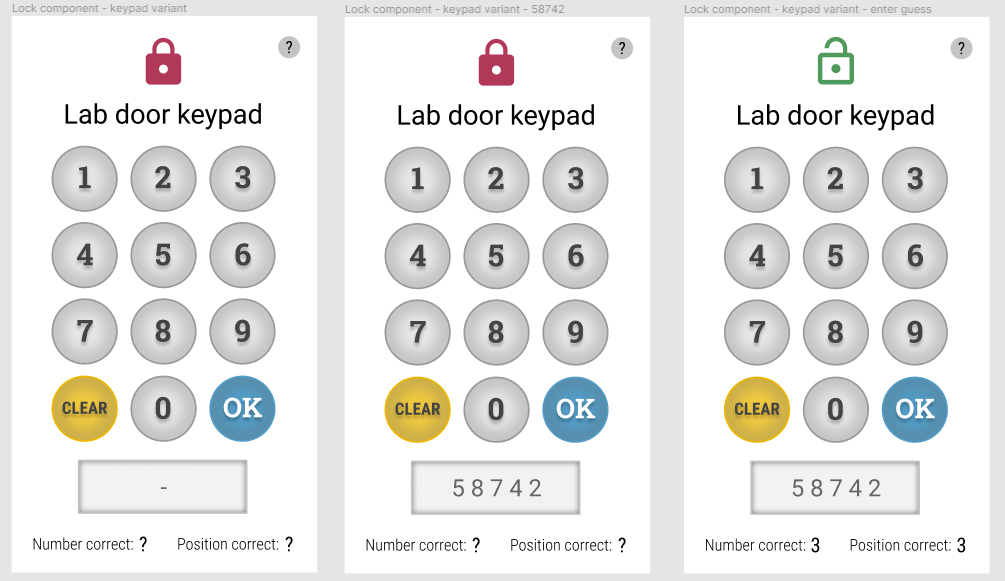Case Study
Mystery Game Design System – Lock puzzles
Lock puzzles are a staple of mystery boxes, both because they provide the thrill of “escape room” experiences, and because they give game designers a convenient way to hide later gameplay behind a “lock” requiring players to solve earlier puzzles.

Component objective:
The existing Deadbolt Mystery Society solution for “locks” is among my #1 frustrations with their boxes: they link to PDFs in Dropbox. PDFs are password-protected. But they often require players to combine multiple numbers, like 3 2-digit numbers that players find solving 3 different puzzles, into a single 6-digit “combination”. My frustration here is the entire lack of feedback. Players have no way to validate if any of the 3 individual solutions are correct. They just know “yes, all 3 in the order I tried worked” or “nope, somewhere along the lines, you did something wrong”.
My objective was to alleviate this frustration for players, but also to design a component versatile enough that game designers aren’t constantly relying on the same type of lock.

Design challenges:
The biggest challenge with this WIP component is striking the right balance between alleviating the frustrations inherent in a password-protective PDF and making locks too easy to solve, thus eliminating the enjoyable challenge.
I knew I didn’t want to simply let players validate each individual number of a multi-digit lock immediately upon entering each digit. Even submitting all digits at once with an explicit “unlock” affordance and getting feedback on individual numbers would invite players to brute-force solutions by guessing numbers until they lock opened, rather than solving the puzzles that would reveal answers.
Eventually, I settled on a system inspired by the old logic game “Mastermind”, where players test their solutions and learn how many of their digits are correct and how many correct digits are also in the right location, rather than finding out which exact ones are correct.
This is another component that will need a lot of play testing before going into production, as well as a more thorough audit of how many types of “locks” common to mystery boxes it should support.
Other components:
- Introduction: Project overview
- Screenflow: Tracking mystery boxes and buying new ones
- Screenflow: Mystery box home screen and component list
- Component: Maps + annotation functionality
- Component: Locks (2 variants) (THIS PAGE)
- Component: Cipher solver
- Component: Image puzzles (2 variants – PENDING)
- Component: Logic puzzle grid (PENDING)
- Component: QR Code scanner (PENDING)